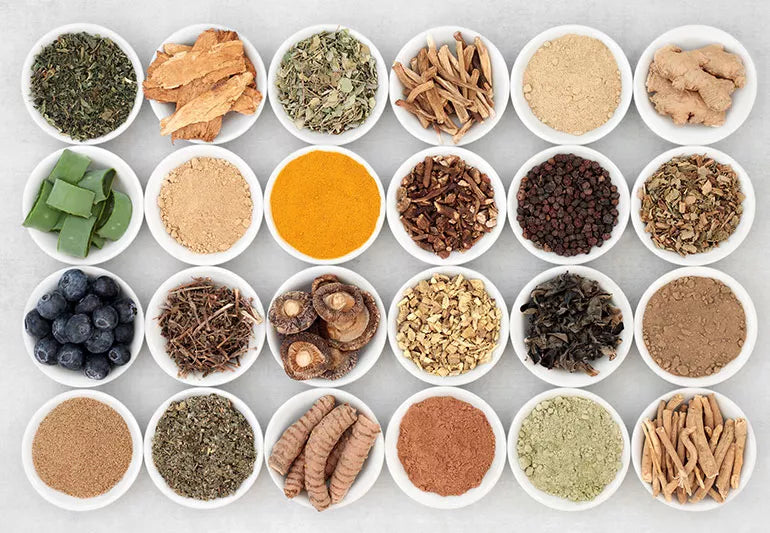
what are adaptogens?
Share
what are adaptogens?
what are adaptogens? - Unlock Your Inner Resilience: Demystifying the Power of Adaptogens
what are adaptogens? In our relentlessly paced modern lives, the quest for balance and well-being has led many to explore the fascinating world of natural remedies. Among these, adaptogens have emerged as a buzzword, promising to help us navigate stress, boost energy, and enhance overall resilience. But what exactly are adaptogens, and how can they potentially benefit you? Let's dive into the science and tradition behind these intriguing plant allies.
More Than Just Herbs: Defining the Adaptogen
The term "adaptogen" was first coined in 1947 by Russian scientist Dr. Nikolai Lazarev, who was researching substances that could increase the body's non-specific resistance to stress. However, the use of many adaptogenic herbs dates back centuries in traditional medicine systems like Ayurveda and Traditional Chinese Medicine (TCM).
To be classified as a true adaptogen, a substance generally needs to meet three key criteria:
- Non-specific response: It must help the body adapt to a wide range of stressors, whether physical, chemical, or biological. This means it doesn't target a specific condition but rather supports overall resilience.
- Normalizing effect: It should help the body return to homeostasis, or balance, regardless of the direction of the imbalance. For example, it can help lower high cortisol levels during stress but also help raise low energy levels when fatigued.
- Safety: It must be non-toxic and safe for long-term use at recommended doses.
How Do Adaptogens Work Their Magic?
While the exact mechanisms are still being researched, adaptogens are believed to work by interacting with the hypothalamic-pituitary-adrenal (HPA) axis, our body's central stress response system. They seem to help regulate the release of stress hormones like cortisol, preventing both their overproduction during stress and their depletion during chronic fatigue.
Think of adaptogens as helping your body become more adaptable – like a thermostat that helps maintain a stable temperature despite external fluctuations. They don't eliminate stress, but they can help your body manage its impact more effectively.
A Garden of Resilience: Popular Adaptogenic Herbs
The world of adaptogens is rich and diverse, with various plants offering unique benefits. Some of the most well-known and researched adaptogens include:
- Ashwagandha (Withania somnifera): Renowned for its stress-reducing and anxiety-relieving properties. It's also studied for its potential to improve sleep, cognitive function, and physical performance.
- Rhodiola Rosea: Traditionally used to combat fatigue, enhance mental performance, and improve resilience to stress. It's often associated with increased energy and focus.
- Eleuthero (Eleutherococcus senticosus), formerly known as Siberian Ginseng: Used to boost energy, reduce fatigue, and support the immune system. It's considered a gentler stimulant than true ginseng.
- Asian Ginseng (Panax ginseng): A potent adaptogen traditionally used to enhance vitality, cognitive function, and immune response. It's often considered more stimulating than other adaptogens.
- Holy Basil (Ocimum sanctum or Tulsi): Revered in Ayurveda for its stress-reducing, mood-boosting, and anti-inflammatory properties. It's also known for its calming and clarifying effects.
- Schisandra Chinensis: Traditionally used in TCM to increase energy, improve physical endurance, and protect against stress. It's also known for its liver-protective and antioxidant properties.
- Maca (Lepidium meyenii): While sometimes categorized differently, maca is often considered an adaptogen due to its ability to support energy, mood, and hormonal balance.
Incorporating Adaptogens into Your Well-being Routine:
Adaptogens are available in various forms, including:
- Tinctures: Liquid extracts that can be taken directly or added to beverages.
- Capsules and Tablets: Convenient and easy for precise dosing.
- Powders: Can be mixed into smoothies, teas, or food.
- Teas: Many adaptogenic herbs are available as single-ingredient or blended teas.
Important Considerations Before Use:
While generally considered safe, it's essential to approach adaptogens with awareness and caution:
- Individual Needs: Different adaptogens have different primary actions. Consider your specific needs and goals when choosing an adaptogen.
- Dosage: Start with the lowest recommended dose and gradually increase as needed, paying attention to how your body responds.
- Quality: Choose high-quality, reputable brands to ensure purity and potency.
- Potential Interactions: Some adaptogens may interact with certain medications. It's crucial to consult with your doctor or a qualified healthcare practitioner, especially if you have any underlying health conditions or are taking prescription drugs.
- Not a Quick Fix: Adaptogens work best over time as they gradually help your body build resilience. Consistency is key.
- Listen to Your Body: Pay attention to how different adaptogens make you feel and adjust accordingly.
The Takeaway:
what are adaptogens? offer a fascinating and potentially powerful way to support your body's natural ability to cope with stress and maintain balance. Rooted in ancient traditions and increasingly supported by modern research, these plant allies can be a valuable addition to a holistic approach to well-being. However, remember that they are not a magic bullet. Combining adaptogens with a healthy lifestyle, including proper nutrition, regular exercise, and stress management techniques, is key to unlocking their full potential and cultivating true inner resilience.
Magic Mushroom Delivery - Mushroom Delivery Victoria & Vancouver
